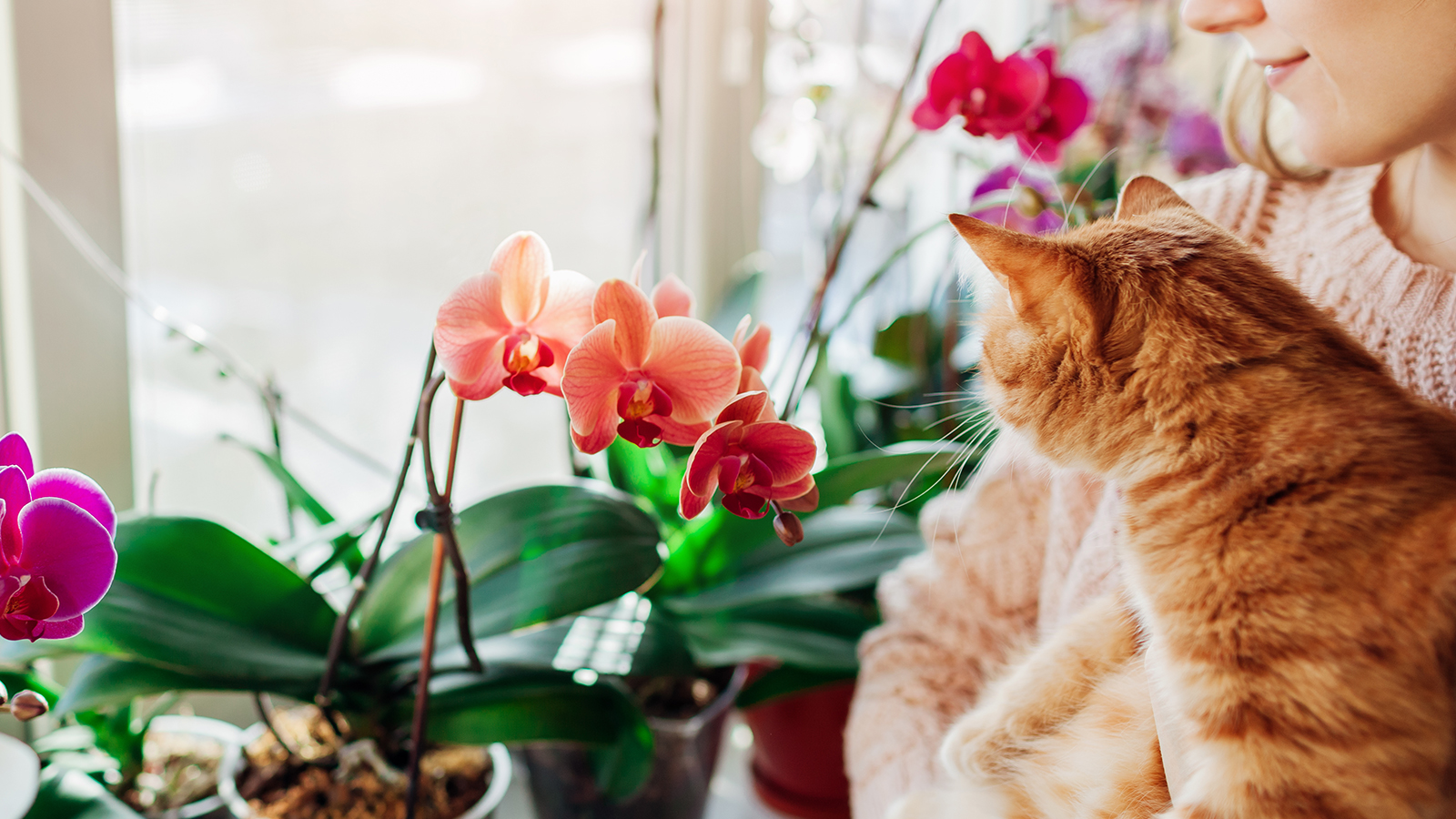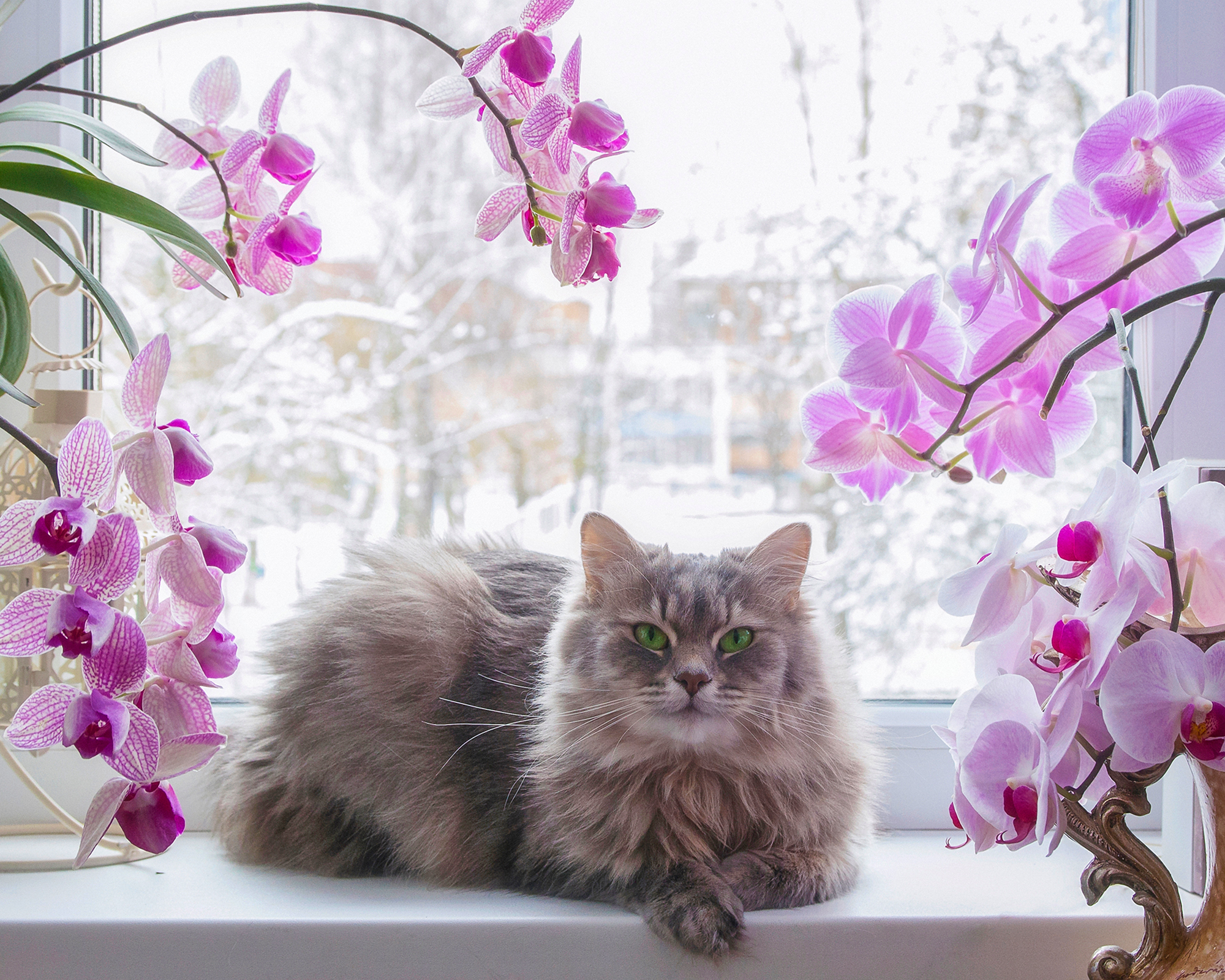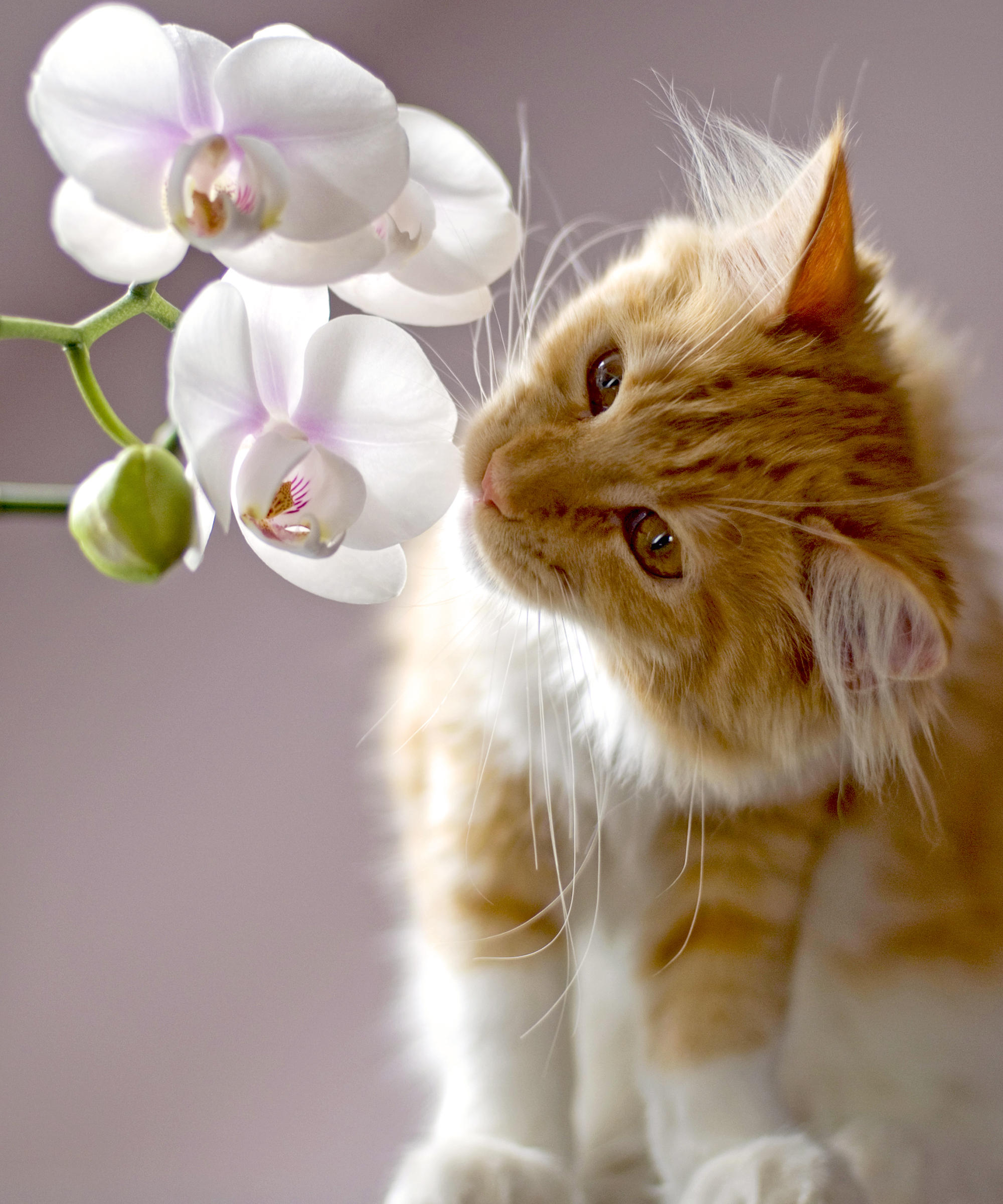
If you own a cat, you know the world is their playground and nothing is off limits – or is that just my cat? Anyway, most cats will get into or onto anything and everything you want them to stay away from, including your prized houseplants. Orchids and cats are going to interact whether you want them to or not, which leads to the question, are orchids poisonous to cats?
Good orchid care is about more than just taking care of your plant – it's about creating a safe environment for your home's occupants. There are edible orchids that humans can enjoy eating, but of course, not everything we eat is good for our pets.

Are Orchids Safe For Cats?
The short answer is no, orchids are not toxic to cats – or dogs for that matter. But, there are some exceptions to be aware of.
The ASPCA holds a list of plants toxic to pets, and claims there are no known species of orchid that are poisonous to cats. That doesn’t necessarily mean there are no rare orchids that won’t harm Fluffy – after all, over 28,000 species have been identified by scientists, so far. But stick with common types of orchids, such as Phalaenopsis, Dendrobrium, and Vanda, and the plants should pose no danger to your cat.
However, while ingesting a bit of an orchid plant is not likely to harm your pet, they may still get an upset stomach or suffer from some vomiting or diarrhea. So, if your orchid is missing leaves or blooms, keep an eye on your cat for the next 24 hours.
If your kitty does get ill, as long as the illness is brief and runs its course in those 24 hours and your pet resumes normal activity, all should be well. If vomiting or diarrhea is severe or accompanied by other symptoms, call your veterinarian right away.
What About Pesticides and Fertilizer?
While orchids in themselves are not toxic to cats, there still may be a danger lurking in the form of pesticides, fertilizer or insecticides on the plant. As a pet parent, it is your responsibility to use products that are pet friendly. That way, if your cat does get a hold of an enticing, waving stem of orchid you can breathe a sigh of relief.
Sign up for the Gardening Know How newsletter today and receive a free copy of our e-book "How to Grow Delicious Tomatoes".
Since you won’t have any idea what the supplier used on a new plants, repotting orchids in an organic orchid potting medium will give you peace of mind.
When fertilizing orchids, use a pet-safe organic feed like fish emulsion to nourish your new plant.

Why is My Cat So Interested in My Orchid?
When my cat was younger it wasn’t uncommon to hear a crashing noise accompanied by her caterwaul. More than a few times the source of my cat's distress (or amusement) was that she’d knocked a plant off a ledge or window sill.
Why was she up there when I had tried so hard to put them out of reach? Well that’s a really good question actually.
Cats may nibble on houseplants because that’s what their ancestors did. Wild cats commonly ingest plants. Domestic cats may like the taste, may be bored, stressed or just stimulated by the plant’s movement.
How to Keep Cats Away From Orchids
How do you stop Fluffy from killing your orchids or other houseplants? Play with her to begin with. Also provide her with stimulating, interactive toys she can play with on her own.
Redirect her stalking jungle tendencies to a plant that’s just for her. Get some cat grass.
Find a place the orchid will love, but the cat can’t get at. While you are searching for this area, remember that cats can and will jump great lengths to get at their “prey” – in this case the orchid. This could be disastrous on many counts.
Lastly, if your pet's behavior stems from anxiety or other stress, and nothing you do seems to help, call in the assistance of a professional animal behaviorist or speak to your vet about how you can help your baby feel better.

Amy Grant has been gardening for 30 years and writing for 15. A professional chef and caterer, Amy's area of expertise is culinary gardening.
